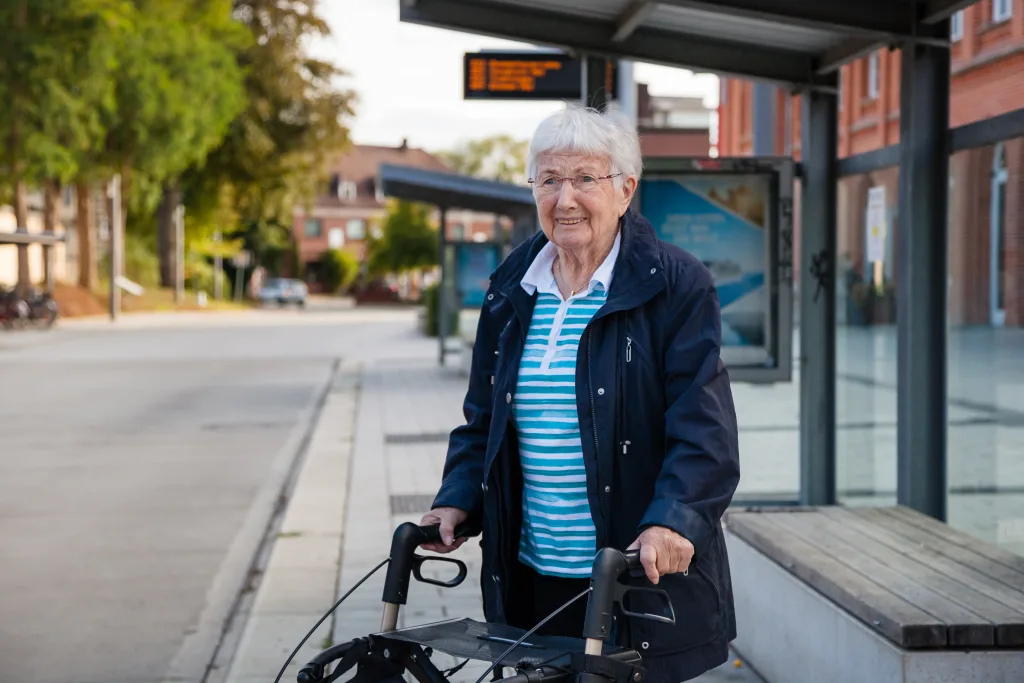
When choosing a senior living community, families often focus on housing, meals, and medical support. But one of the most underrated factors influencing a senior’s quality of life is transportation. The ability to move freely beyond the walls of the community impacts independence, social connection, and overall happiness. Communities may offer group shuttles, scheduled trips, or individual rides, but the details of these transportation policies can vary widely.
For those considering assisted living, transportation policies can make the difference between a senior who feels empowered and one who feels isolated. At Living Your Choice, we know that true independence in senior living means more than just daily care. It means having the freedom to stay engaged with the outside world, visit family, attend appointments, and remain part of the broader community.
Why Transportation Matters in Senior Living
Transportation is more than a convenience—it’s a lifeline. Many seniors either no longer drive or are considering giving up their car due to safety concerns. Without reliable transportation, they may feel cut off from the outside world. A robust transportation policy in assisted living ensures that seniors can continue to:
- Attend medical appointments without relying solely on family.
- Participate in community outings like shopping trips, cultural events, or dining out.
- Stay connected with places of worship, volunteer opportunities, or hobbies.
- Visit family and friends outside the senior living community.
When families overlook transportation during their search, they may discover limitations later. For example, some communities only provide scheduled rides on certain days, while others may charge extra fees for each trip. Understanding these details early is essential to maintaining independence and satisfaction in assisted living.
Common Transportation Options in Assisted Living
Each senior living community develops its own approach to transportation, and policies can differ even within the same region. Some common models include:
Scheduled Group Transportation
Many communities operate buses or vans that run on regular schedules. They may offer weekly trips to grocery stores, shopping centers, or pharmacies. While convenient, these services may not meet every individual’s needs, especially if the schedules are limited.
Medical Appointment Shuttles
Healthcare is a top priority in senior living, and most communities provide transportation for medical appointments. However, families should ask whether this service is included in the monthly cost or billed separately. Some communities limit transportation to within a certain radius, which can affect specialists who are farther away.
Private Ride Services
Some assisted living communities provide one-on-one rides in smaller vehicles. These are often more flexible but may come at an additional fee. Private rides allow seniors to attend social events, visit family, or enjoy outings that aren’t part of the community’s schedule.
Partnerships with Ride-Share Services
An emerging trend in senior living is partnering with ride-share providers like Lyft or Uber. This expands flexibility, though not all seniors feel comfortable using app-based services. Communities often supplement this by training staff to help residents schedule rides.
At Living Your Choice, we encourage families to ask detailed questions about how each community structures transportation policies, including costs, scheduling, and geographic limits.

How Policies Affect a Senior’s Independence
The impact of transportation policies on independence is often underestimated. A senior who can access reliable transportation is more likely to feel empowered and connected. Conversely, limited or costly transportation can lead to isolation.
For example, imagine a senior in assisted living who loves attending a weekly church service. If the community doesn’t provide Sunday transportation, that senior may be unable to continue an important spiritual tradition. Similarly, seniors who enjoy seeing grandchildren may struggle if transportation is restricted to weekdays or limited to a few miles from the community.
Transportation is also essential for healthcare. Many seniors need to see multiple specialists, some of whom may not be close by. Without flexible transportation, families may need to take time off work to help, creating added stress. A well-designed transportation policy in senior living communities reduces this burden and ensures seniors can manage their health independently.
Questions to Ask About Transportation Policies
When touring an assisted living or senior living community, families should not overlook transportation. Important questions include:
- How far does transportation extend (is there a mileage or radius limit)?
- Is transportation included in the monthly fee or charged per ride?
- How often does the community provide group outings or shopping trips?
- Are rides available for personal errands or only medical appointments?
- How far in advance must rides be scheduled?
- Are there additional fees for evening or weekend rides?
- Does the community partner with ride-share services for flexibility?
By asking these questions upfront, families can avoid unpleasant surprises after moving into a senior living community. At Living Your Choice, we help families prepare a comprehensive checklist to evaluate each community fairly.
The Link Between Transportation and Quality of Life
Seniors thrive when they feel connected to the outside world. Access to reliable transportation allows them to remain socially engaged, which has been shown to reduce depression and cognitive decline. In contrast, limited access can lead to feelings of confinement, even in an otherwise active assisted living environment.
Independence is about more than personal care—it’s about choice. Seniors who can decide when and where they want to go are more likely to feel in control of their lives. This sense of autonomy is one of the key benefits families should seek when evaluating senior living communities.
Living Your Choice understands that the right community is not just about care services but also about opportunities for seniors to remain active, independent, and engaged with the world around them.
Why Transportation Is Often Overlooked
Families naturally focus on immediate concerns such as medical care, safety, and housing when evaluating assisted living communities. Transportation may seem like a secondary issue, but its impact grows over time. Seniors who initially do not drive may become more dependent on community transportation as they age. If policies are restrictive, families may eventually need to provide supplemental rides, creating additional stress.
At Living Your Choice, we make sure families don’t overlook this critical detail. By evaluating transportation policies early, families can choose a senior living community that supports independence now and in the future.

Conclusion: Independence Depends on More Than Care
Transportation is one of the most powerful but underestimated factors in shaping a senior’s independence. While assisted living communities provide essential care and housing, transportation policies determine how seniors remain engaged with family, healthcare, and the outside world. Limited transportation can leave seniors feeling isolated, while flexible, affordable options can preserve freedom and dignity.If you are exploring senior living communities for yourself or a loved one, don’t overlook this vital aspect of independence. Visit Living Your Choice or call today to learn more about how we can guide you through the process. Living Your Choice is dedicated to enhancing the quality of life for seniors by helping locate the right type of senior living community based on your personal preferences and lifestyle.










